Talking About Trust. Edelman Trust Barometer report 2023
Published:
Talking About Trust. Edelman Trust Barometer report 2023
by
Danny Quah
Mar 2023
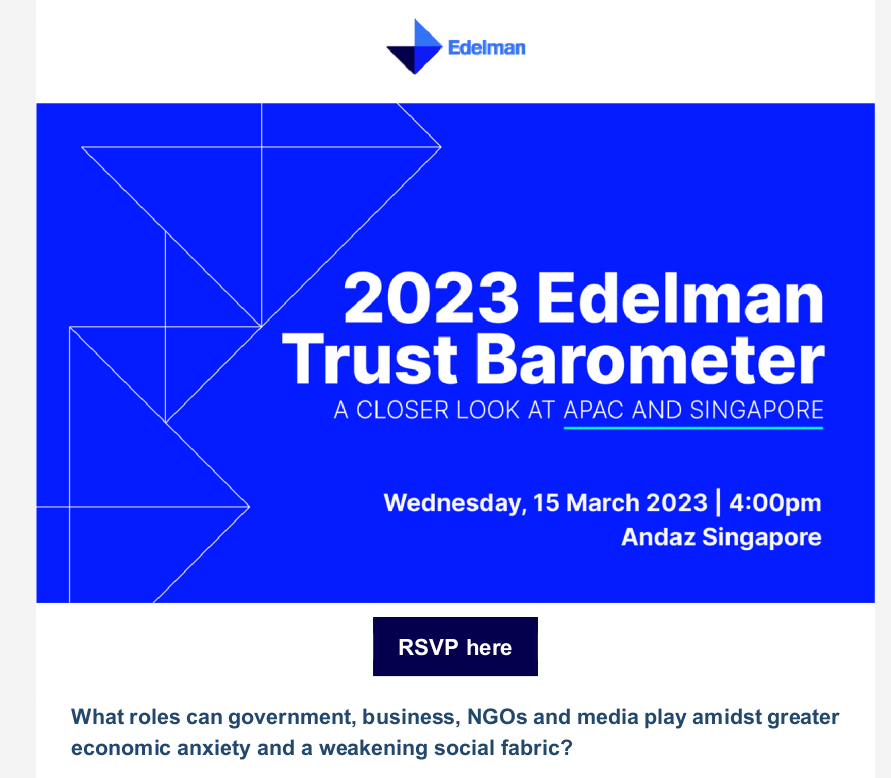
On Wednesday 15 March I got to take part in the Singapore launch of the Edelman Trust Barometer APAC report. In the event all us panelists, given our diverse backgrounds, looked to and discussed different key findings in the report. For me, central was this:
Within many nations around the world a deep polarization has emerged, stemming from increased economic anxiety, disinformation, and the failure of leadership. Across nations too, division and mistrust have surfaced between members of the international community. Many people now fear the future.
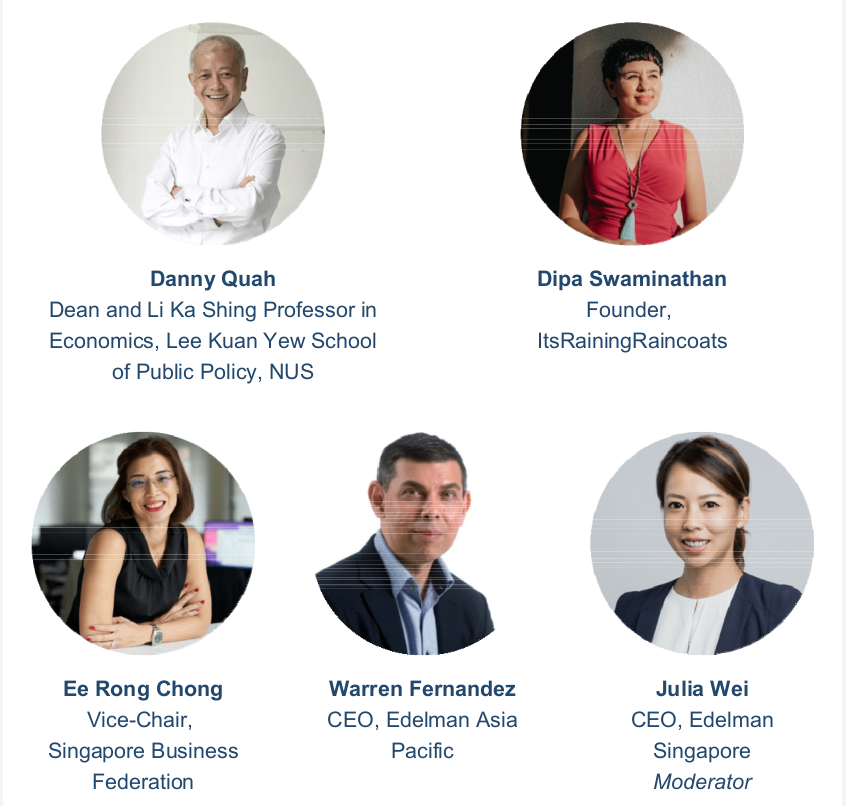 .
.
What I sought to communicate in response: Speak Truth to Power; Be Evidence-Based; Embrace both the Reassuring and the Awkward.
This is what I mean.
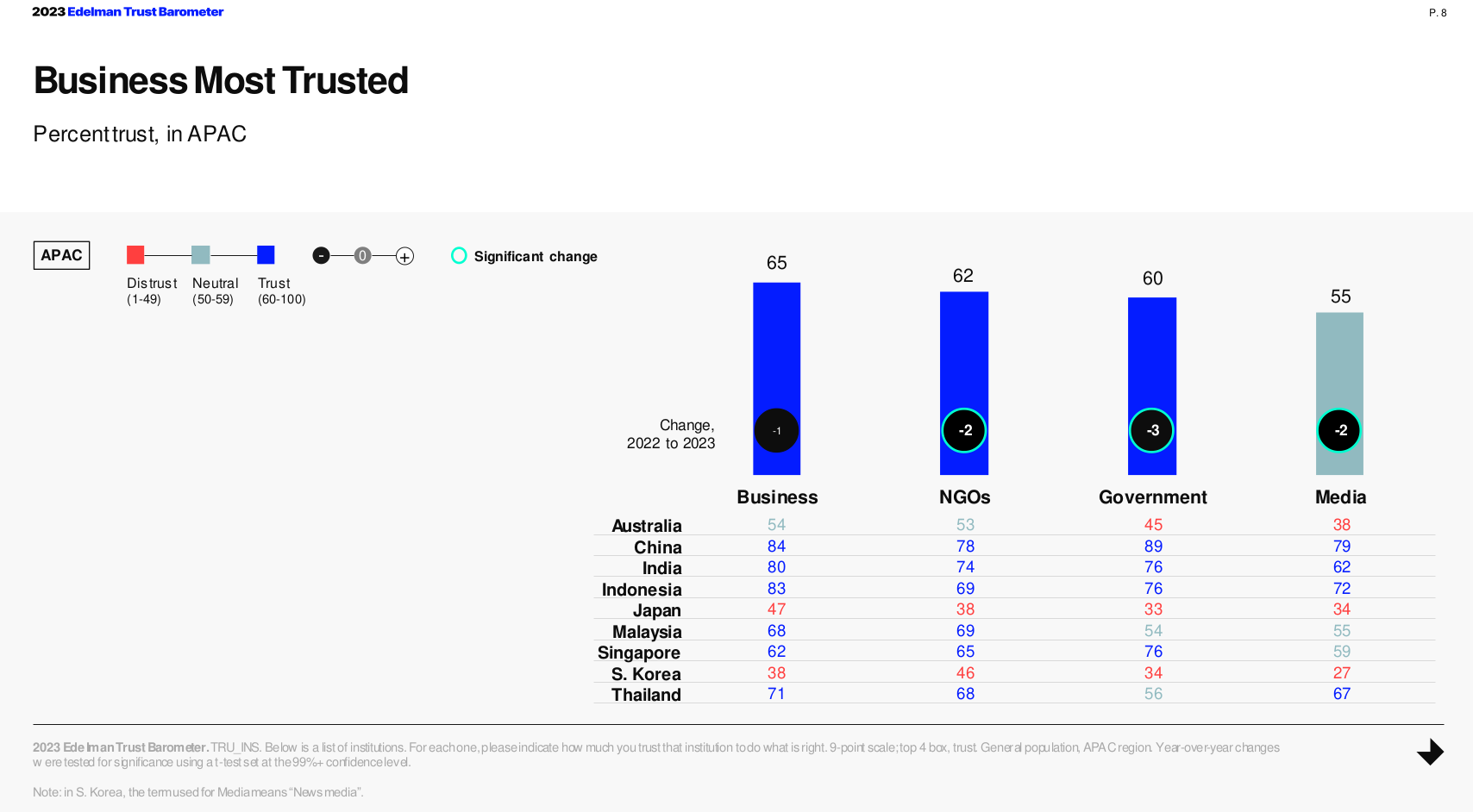
- Almost everywhere in the world, governments are trusted less than business. In APAC there are only two exceptions: China is one; the other is Singapore. In the Edelman survey the Singapore government shows a whopping 14 percentage point lead in trust over all other significant public institutions, including business, media, and NGOs. Elsewhere across APAC, it is Business that people trust more than Government.
- It has long been observed that on any number of important issues Singapore’s policy-making institutions are collaborative and trilateral—involving government, business, and workers simultaneously. The wage model, for one, via the National Wages Council; and what I got to witness in the recently-concluded Advisory Council for Platform Workers was another. Agency and collaboration go a long way in building trust. Successfully solve problems as well, and trust spills over.
- But the picture is not entirely gloomy elsewhere, even if governments are not trusted as much. Adam Smith had said of business “It is not from the benevolence of the butcher, the brewer, or the baker, that we expect our dinner, but from their regard to their own interest.” Today, rightly, in my view, it is how the business community performs on competence and ethics that supplies the demands of ordinary people on these dimensions. What matters is not whether business is selfish (or, in geopolitics, whether countries act purely on the basis of self-interest; everyone does). What matters is what they do with that motivation, and whether they meet the right needs.
- When business compete with each other, they can behave in one of at least two ways. (Same again with nations.) One, they can seek to win by doing better than the competition: they can invest to train their own people, and by doing so raise their own productivity, improving themselves and everyone in the process. Or, they can seek to win exclusively by containing the other guy, thereby making themselves and everyone else the poorer for it.
- If people being different is a cause of mistrust, don’t rely on everyone being the same to bring them together. The politics of identity is a treacherous narrative: The Nazis were unified that way, and the outcome was obviously not a happy one. If it is to be a politics of identity, we still have to figure out how to make that politics inclusive, but that seems to me deeply inconsistent with the objective of restoring trust by having everyone as alike as possible.
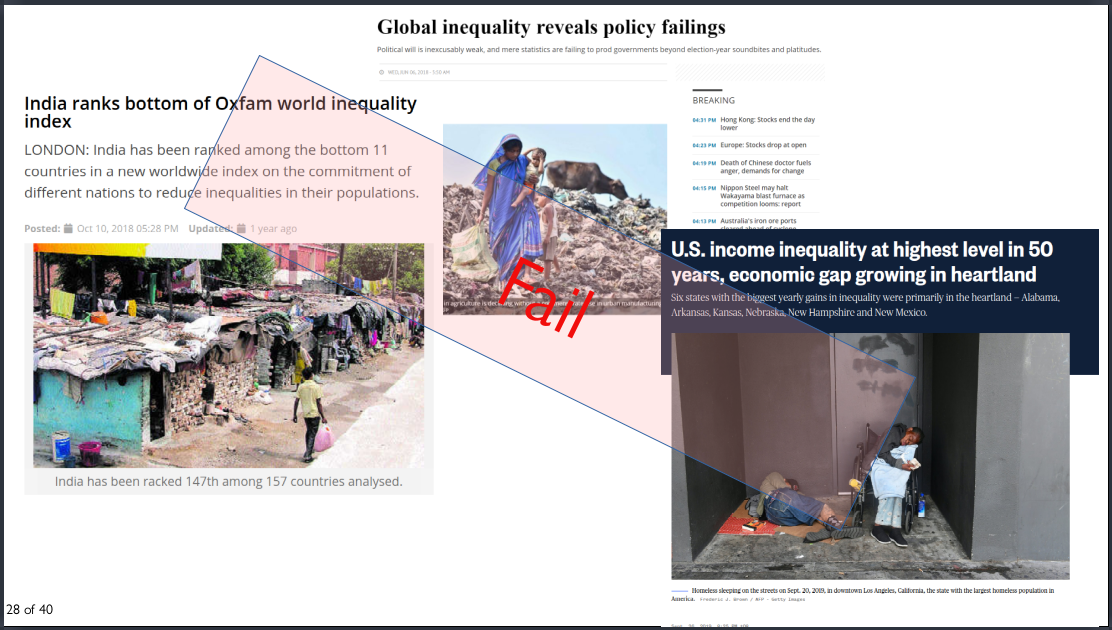
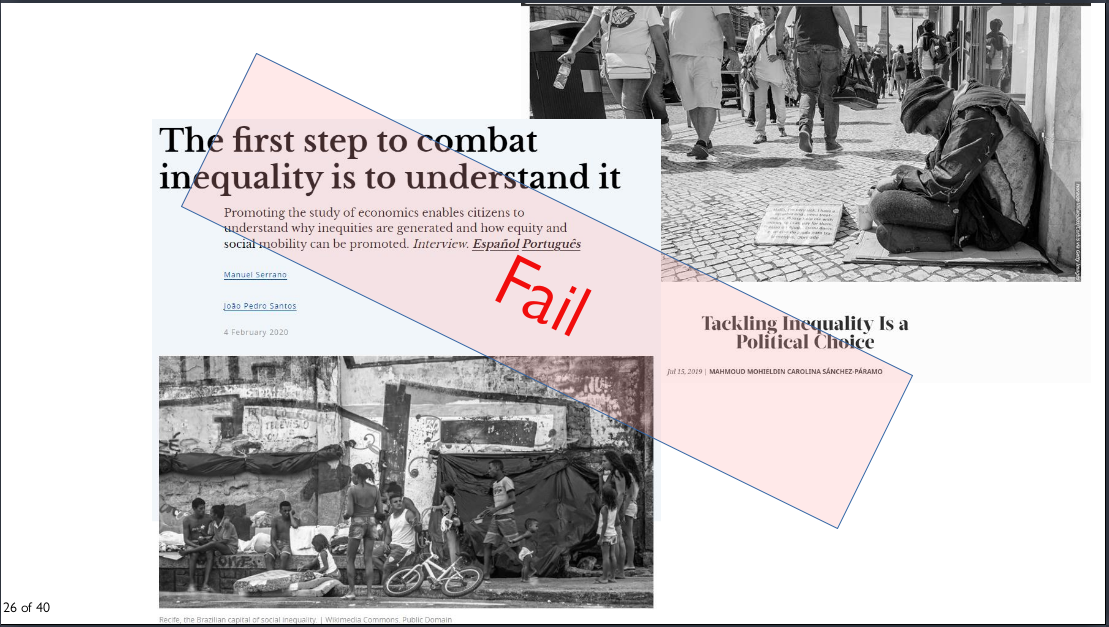 .
.
- What can the rest of us do?
- There is a vicious circle in trust. Lose it, and all actions to restore it are viewed cynically, further reducing the effectiveness of institutions to restore societal trust.
- Just one example: We need to restore trust in institutions by fighting fake news. The prime example for me is how inequality is often viewed as the whipping boy or sufficient statistic of institutional failure.
- No one would condone spreading misinformation about MRNA vaccine, the press least of all. So too with every other large social challenge, inequality among them. Media should not be repeating false nostrums about inequality that pander to a social justice warrior mentality and unhelpfully lower trust in society’s institutions. (1) If poor people today have x% of total wealth, the same percentage as a century ago, then (no matter what x is, as long as it’s constant) poor people today are NOT as poor as they were in the past; they are inconsiderably wealthier: stop repeating the misinformation that growth has not benefited the poor. (2) Stop saying you want those from the bottom quartile to transition to the top quartile, without admitting that that means you also want people at the top to fail. Social mobility in the sense of inter-quartile dynamics is a zero-sum game. If lower classes moving to the top of the hierarchy is what you seek, then upward social mobility cannot happen without exactly equal and opposite downward social mobility. (2) Stop suggesting your stories are about inequality when what you use to move your audience are depictions of poverty. This simply feeds an ongoing conflation between inequality and poverty.
